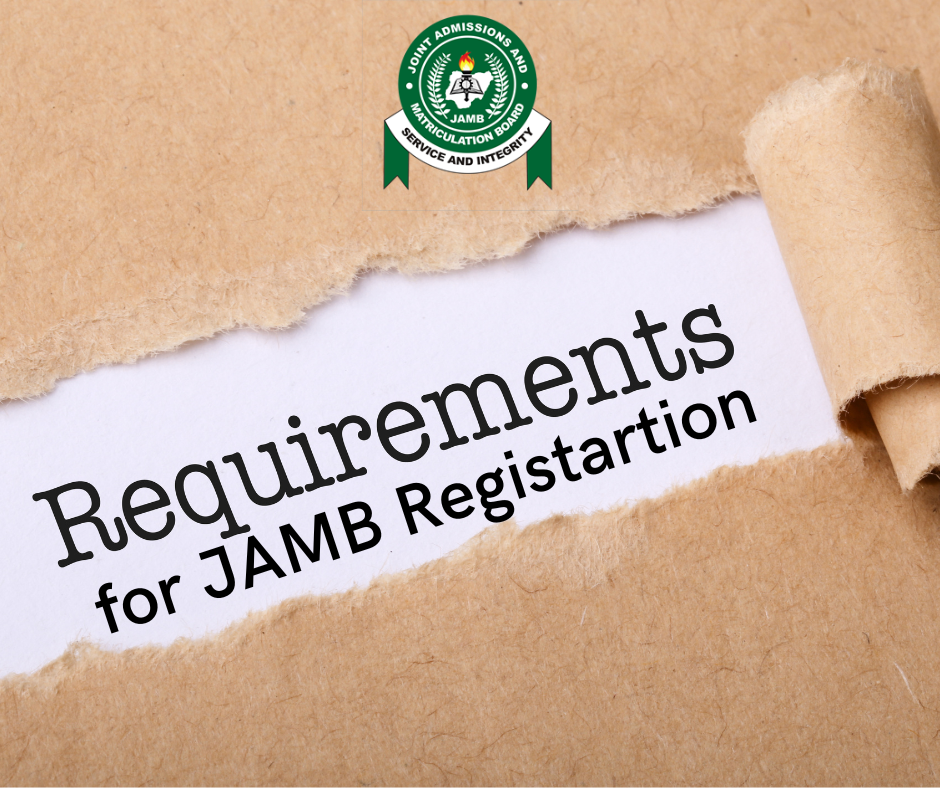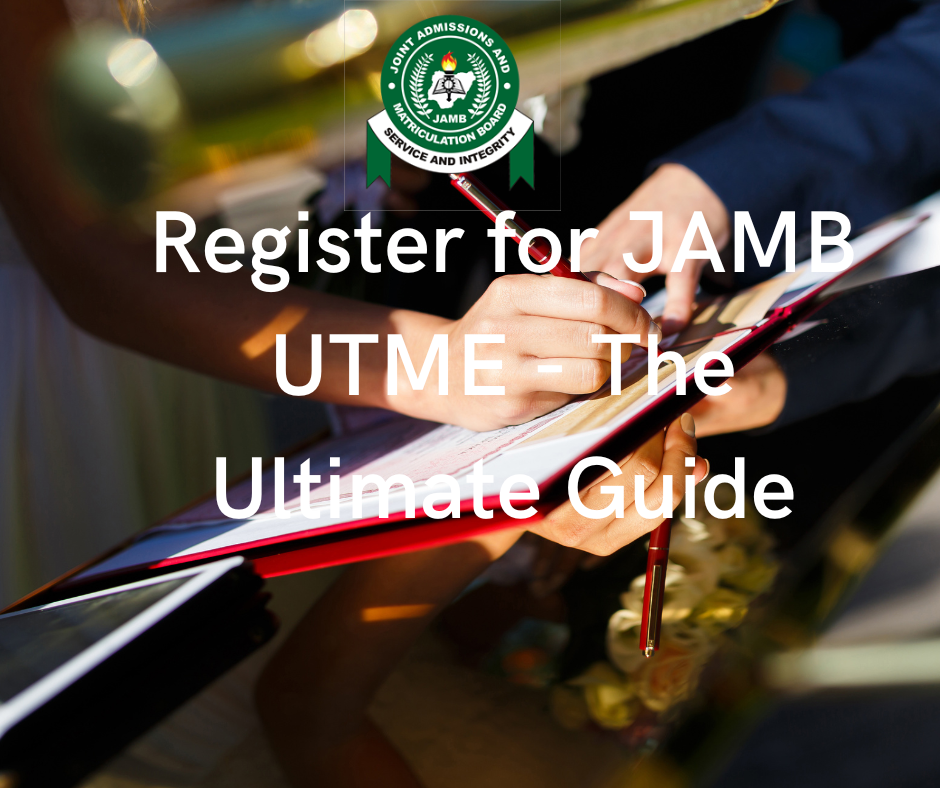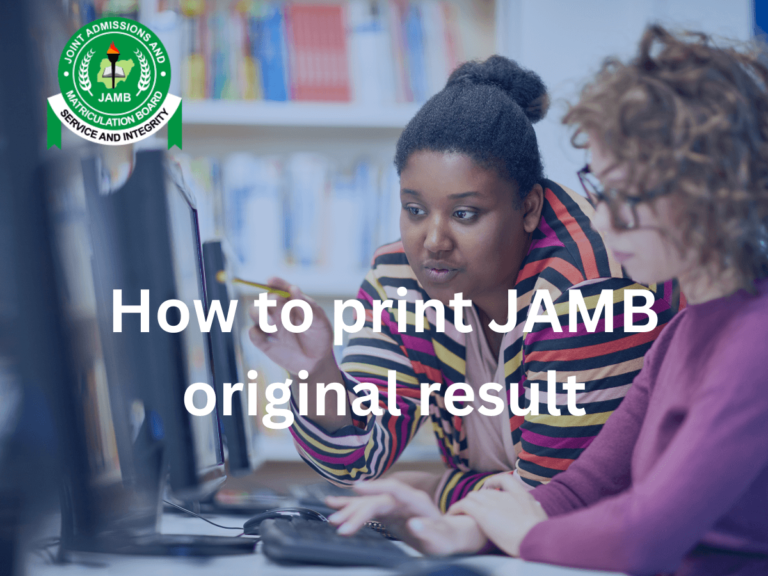About JAMB and UTME – Full meaning and everything you need to know
Do you know that there is a difference between JAMB and UTME?
It is quite obvious that these acronyms when spelt out in full mean different things but this fact has not stopped people from getting confused on which means what.
This article intends to provide some clarity to this confusion. Stick around if you would like to get things untangled.

What JAMB means in Nigeria
The Joint Admissions and Matriculations Board, or JAMB, is a term used in Nigeria. It is a board that oversees entrance exams into Nigerian universities.
Every year, the board administers this test to applicants who wish to get into the university.
There are JAMB CBT (Computer Based Test) centers In each 36 states in Nigeria.
The Board was founded in 1978, and Professor Ishaq Oloyede, who was chosen by President Muhammadu Buhari in August 2016, serves as its registrar.
Before 2010, JAMB offered two distinct exams for candidates seeking admission into Nigeria tertiary institutions.
For applicants seeking admission to a Nigerian institution, the University Matriculation Examination (UME) was the initial test. The Matriculation Examination for Pedagogical, Polytechnic, and Mono Technical Faculties was the second (MPCEME). The test was designed for applicants seeking admission to Nigerian polytechnic, mono-technic, or teacher training institutions.
These two exams have currently been consolidated by JAMB into a single exam known as the Unified Tertiary Matriculation Examination (UTME). All applicants to Nigerian universities, polytechnics, mono-technics, and colleges of education must take the UTME. Therefore, you must take the UTME if you want to enroll in higher education in Nigeria.
What does UTME mean?
The Unified Tertiary Matriculation Examination, or UTME, is a CBT test that is used to ascertain a student’s eligibility for admission into any university in Nigeria.
Since 1978, the UTME has been a paper-and-pencil test. It switched to a computer-based test in May 2014.
Candidates take the UTME every year and are tested in four disciplines (English and 3 other subjects related to the course they wish to study).
In Nigeria, the Joint Admissions and Matriculation Board (JAMB) is in charge of all UTME-related matters. The exam is graded over 400 for all the subjects taken. The UTME is compulsory for entrance into any university in Nigeria and the UTME results are valid for one year.
The difference between UTME and JAMB
The distinction between JAMB and UTME is mainly that UTME is the name of the exam, whereas JAMB is the name of the organization that oversees the exam (UTME).
So many people refer to the exam as JAMB and we are also guilty of that. It would make more sense to say “JAMB exam” rather than just “JAMB”. That’s fine anyways, as long as we understand the context.
What is the difference between Post-UTME and JAMB?
The Post-UTME exam, which stands for Post Unified Tertiary Matriculation Examination, differs significantly from the JAMB exam in several ways.
After the UTME exams, prospective university students take the Post UTME exam.
JAMB does not administer this exam; rather, the candidate’s higher institution does.
Candidates must satisfy the institution’s standards, such as, O’Level requirements, age requirements, etc. before applying for the post-utme forms.
What does JAMB aim to accomplish?
- To conduct a matriculation exam to be admitted into any Nigerian university, college, or teacher training institution, regardless of its name.
- The appointment of examiners, moderators, invigilators, members of committees and professional organizations, and other individuals concerning matriculation examinations and all other relevant concerns.
- After taking into account the following, hire persons who are suitably suited for higher education institutions:
- Positions are open at all universities.
- The policies endorsed by each tertiary institution’s owners or other appropriate authorities.
- Choices for specific universities and degree programs among applicants, whether or not these preferences are voiced.
- Any other item the Board is directed to consider by the Honorable Minister or that it determines is appropriate in the circumstances.
- Collecting and disseminating data on any issues about college admissions or other issues that are important for the Board to carry out its duties.
- Engaging additional tasks that are advantageous or essential for him to fully accomplish all or some of the duties outlined in this Decree.
When can I apply for UTME ?
The UTME is typically in April and May of each year. The date of the exam will be revealed by JAMB and updated on our website.
How can I register for JAMB?
You must buy a card called the JAMB scratch card to register for the UTME. The scratch card has a PIN (consisting of several digits, for example, 12345). After purchasing your scratch card, you will need to approach the nearest JAMB CBT center to register electronically for the exam online. Visit the JAMB registration page and log in with the PIN from the scratch card to register, adhere to the guidelines on the registration page.
We have a full guide on how to register for JAMB in this article
Is the WAEC and JAMB curriculum the same?
The West African Examinations Council (WAEC) syllabus is considerably dissimilar from the JAMB UTME syllabus. All applicants for the UTME receive a copy of JAMB’s syllabus and brochure.
All of the subjects and topics advised as part of your UTME preparation are covered in the JAMB curriculum. The syllabi are different from those for WAEC or NECO even if the subjects are the same. So be sure you use the JAMB curriculum to prepare for the UTME.
How do I decide which UTME subjects to take?
The list of all Nigerian Universities, Polytechnics, and Teacher Training Colleges may be found in the JAMB Brochure. Each institution has distinct prerequisites for each discipline or course.
Each university explains the subjects you must take in the UTME to be eligible for admission under the prerequisites section. The exam must often be taken in four separate disciplines.
Different schools, subjects, and disciplines have different requirements. Check the criteria for the precise school and course you want to enroll in. Incorrect subject selection will result in automatic exclusion from consideration for admission.
What structure does the UTME follow?
At the UTME, each student must complete four subjects. Though some subjects feature 100 questions, each subject has at least 60 questions. Each subject receives a total score of 100, and a grand total of 400 is awarded for all four subjects. The questions have a multiple-choice format and offer students 5 answer options, denoted by the letters A through E. The UTME is done via a computer (CBT).
If you intend to take the upcoming UTME, get ready for a computer-based exam and learn some tips on how to score high in JAMB
Don’t worry if you do not know how to use a computer; it is very easy. Read this guide on how to use a computer for UTME
What you should be aware of as a candidate planning to take the UTME
1. Reprinting of slips
You must wait for information from JAMB after enrolling before reprinting your slips.
JAMB slips are to be reprinted in order to let candidates know about the designated exam centers, sessions, times, and dates of the tests. The information contained in these reprinted slips are different for each candidate.
Reprinting the slip is possible anywhere there is an internet-connected computer and printer, according to JAMB. Additionally, candidates must bring at least one duplicate of the slip to the testing location. You must present this slip at the venue of the exam before you be allowed into the exam hall.
2. You must be aware of your center.
Candidates who are unsure of their test centers are recommended by JAMB to visit the their centers physically or online before the exam dates so they can easily locate them on test day to avoid being late to their center.
Additionally, it is advised that candidates arrive at the exam center early.
According to JAMB, “…all applicants are encouraged to stay close to exam centers and prepare in advance. They should get to their centers early enough if at all possible.
3. The examination board prohibits certain things
The examination board has also reaffirmed that various objects, primarily electronic gadgets, are not allowed in the exam center. The action, according to the testing facility, is intended to reduce wrongdoing.
Cell phones, watches, pencils, calculators or other similar electronic devices, USBs, compact discs (CDs), hard drives, and other similar storage devices were among the items identified by JAMB as being forbidden.
Books, writing or reading materials, cameras, recording equipment, microphones, headphones, pen or ink readers, Bluetooth devices, key fobs, ATM cards, erasers, tissues, facial tissues, and money are all prohibited.
Also, glasses—aside from those used for medical purposes—should not be carried into the centers. Additionally, glasses must be validated by invigilators, according to JAMB to prove it is for medical reasons.
According to JAMB, permitting some of these items have in the past encouraged students to use unethical exam strategies. The prohibition on these goods is therefore meant to safeguard the integrity of the board test, especially from the mischief of some candidates.
4. The importance of biometric verification
According to JAMB, the only method of candidate verification that would be accepted is the upgraded biometric data capture system.
All applicants should be subject to screening, according to the board, and officials won’t play favorites with applicants whose fingerprint cannot be verified after several tries.
The examination office claims that this is the only list of candidates who are present for the examinations. Other rules can be checked in the handbook that will be given out at the point of registration. You can also find these rules here.












